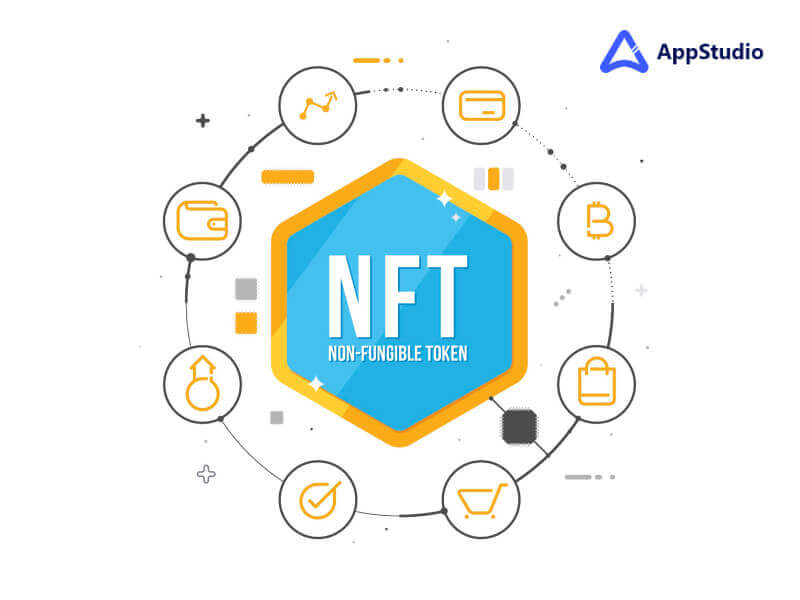In this arena, the aviation industry is undoubtedly one of the fastest-growing sectors of the 21st century. The emergence of blockchain technology has given rise to a new hype of technological innovation, which can add value to various aspects of the aviation industry.
The use of Blockchain in aviation can open up new opportunities in the field of transparency, which is related to maintenance, flight data security, and passenger information, which will help increase efficiency and accuracy.
Understand What is Blockchain in The Aviation Industry?
In simple words, Blockchain is a distributed ledger that permits information to be shared and recorded by the community. Cryptographic validation techniques secure this system. As per a Blockchain app development agency, one of the blockchain’s main characteristics is that members of the network have a completely transparent view of the information found on it. To add more details on the blockchain, a consensus was reached between all the network members. The information recorded can be any form of digital data such as digital assets, transactions, or contracts.
What makes blockchain innovative is that all transactions are accessible to the entire network, allowing members to view the history of every transaction recorded on the web. Cryptographic algorithms validate the way transactions are compressed into blocks and how blocks are added to the network by consensus. It ensures network integrity and immutability. Thus, blockchain allows trusted intermediaries to be replaced by a mathematical algorithm in which trust in the system derives from its cryptography.
Use Cases For Blockchain in Airlines Industry
As blockchain technology presents excellent opportunities for securing and managing data, the airline industry could immediately consider implementing blockchain to its advantage. Below are several ways in which blockchain will come in handy within Airlines.
Identity Verification
The use of blockchain can improve the efficiency of verifying passenger identities. Passenger details such as required documents, tickets, and biometric data, can be stored on the blockchain network. Passengers enter the airport via a verification code, which will end the hassle of queuing long periods for document verification.
Overbooking
In the past few years, overbooking has been a problem for airlines that diminishes via the use of blockchain technology. The use of smart contracts will enable the automated implementation of a smart ticketing system that passengers will use to purchase tickets. This will make manual ticket issuance redundant, which will increase the accuracy rate.
Baggage and Cargo Tracking
The blockchain allows reliable and irreversible tracking of passenger and cargo bags’ location and status as these assets change custody from the moment of storage. As such, blockchain can help increase transparency and visibility. Also, it allows authorities and passengers to find their baggage easily at any time throughout the value chain.
Aircraft Maintenance
An airplane can change ownership up to five or six times throughout its life cycle. It makes tracking and tracing information a time-consuming and tedious process. For this reason, an irreversible record listing aircraft maintenance history in a digital setting can be of great value to the stakeholders involved.
Automatic Payments
Blockchain enables the ability to create smart contracts, electronic agreements that execute themselves based on a predefined set of rules. The use of smart contracts can be adopted in airline transactions such as billing between airlines, sales of travel insurance, billing between travel agents and airlines, determination of loyalty settlement, and payment of airport fees and authorities.
Read Also : – Role of Blockchain Technology in Business Transformation
Blockchain is Perfect For Addressing The Challenges of the Airlines Industry:
Labor
With biometric identity verification, Blockchain technology can make it practical to ensure the identity of everyone who interacts with the aircraft. Moreover, the status of their credentials – becomes part of the real-time snapshot of their condition.
Apart from knowing the origin and history of a spare part, those with the appropriate permits can also immediately see the verified identity of the person who installed or serviced it.
Finance
Building value in the secondary market: Extend jet engine maintenance standards across aircraft with verifiable maintenance records updated in real-time.
Leasing transformations: Make obsolete the need to tear down the plane to inventory its parts and assess its condition.
Increase insurance: Ensure individual aircraft in a way that reflects their unique risks.
Maintenance
Increase efficiency: Reduce time spent on routine inspections and maintenance.
Beat the mercenary parts retailer: Compare the serial number of the offered parts with an indelible record of real-time ownership, location, and utilization.
Rediscover aircraft maintenance: Perform more predictive maintenance. Reduce procrastination and loss of income.
Replace warranty with warranty: This allows the deployment of service arrangements in which the supplier guarantees the supply, repair, and repair of components and systems.
Promote Blockchain Technology in Airlines
To structure the potential apps of blockchain in the aviation field and generate a standard for their use. Lufthansa Industrial Solutions has launched the Blockchain for Aviation initiative. However, Blockchain app developers stated that the goal is to bring together all areas of expertise and collectively determine the potential of blockchain technology. Potential participants include. For instance, aircraft manufacturers, software developers, lessors and regulators, logistics providers, and MRO service providers.
Final Words
Finally, Appstudio states that the industry should consider how adjoining blockchain with technologies such as predictive analytics, robotics. Also, the internet can create greater power and synergy. For instance, in an industry where health and safety are a significant concern. However, the combination of blockchain and IoT can enhance quality assurance and proof of provenance throughout the supply chain.
Forward-looking airlines using blockchain and other digital technologies to rethink how most businesses will benefit fundamentally. If ever you need help or want to know more about the latest technology, get in touch with us.






